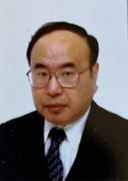Keynote Speakers
Alois K. Schlarb
Professor, Rheinland-Pfälzische Technische Universität Kaiserslautern-Landau (RPTU), Kaiserslautern, Germany;Visiting Professor, Qingdao University of Science and Technology (QUST), China
Speech Title: Combining fundamental engineering research with artificial intelligence: the key to developing high-performance polymer composites for tribological systems
Abstract: 20% of the world's energy is used to overcome friction losses in moving systems. Of this, 18 to 40% can be saved using new technologies 1 . Plastic-based composite materials can make a significant contribution to this in sliding contacts. The qualification of tribological systems is a complex process. The load spectrum of such systems is essentially defined by the combination of surface pressure and sliding velocity; in addition, parameters such as ambient temperature, surface properties of the system partners or component geometries play an important role. By modifying the plastics with various fillers, the reliable development of tribological pairings leads to a multidimensional investigation window with an almost unmanageable experimental effort. A completely new approach using novel intelligent test technology in combination with artificial intelligence tools can reliably determine the impact of a large number of parameters. The presentation highlights the relationships and mechanisms that have been explored over the past decades, but also the limitations of this approach for the targeted development of high-performance tribocomposites. The talk shows that artificial neural networks can solve this problem. They are superior to the human brain in pattern recognition and thus in predicting tribological properties depending on a variety of loads. However, ANNs require a large amount of data as input, which can be achieved in a time and cost-efficient manner with the intelligent testing technology presented here.
Keywords: Tribology, High Performance Composites, Artificial Intelligence, Intelligent Testing
Biography: Professor Alois K. Schlarb currently serves as Senior Research Professor at the Rheinland-Pfälzische Technische Universität (RPTU), is a member of the State Research Center OPTIMAS at RPTU, and a visiting professor at Qingdao University of Science and Technology (QUST), PR China.
Alois K. Schlarb studied mechanical engineering at the University of Kaiserslautern, specializing in production engineering and company organization. After his graduation in 1984 he relocated to the University of Kassel, working as a scientific assistant to Prof. Dr.-Ing. Dr. e.h. Ehrenstein. He was awarded a doctorate in 1989 for his thesis on polymer processing. From 1988 until 1989 he was also head engineer at the university’s Institut fuer Werkstofftechnik (Institute of Materials Technology). In the following 13 years Professor Schlarb held different positions in the industry, e.g. the polymer laboratory of BASF SE as material scientist and project manager researching composites, last as Vice President and head of marketing, research and development with B. Braun Medical AG, Switzerland. In November 2002 Alois Schlarb was appointed to a full professorship for "Composite Materials" at the Technische Universität Kaiserslautern (now RPTU Kaiserslautern-Landau) and held this position until March 31, 2022. From 2002 to 2008 he served in parallel as Chief Executive Officer of the Institut für Verbundwerkstoffe GmbH (Institute of Composite Materials). Since 2018 Alois Schlarb also holds a visiting professorship at Qingdao University of Science and Technology, Qingdao, PR China.
Professor Schlarb served as Spokesman of the Scientific Alliance of Polymer Technology (WAK) from 2009 - 2015 and as President of the Society for the Advancement of Materials and Processing Engineering SAMPE Deutschland e.V. from 2003 - 2015. He is on the editorial board or scientific advisory board of several journals and has more than 150 publications in peer-reviewed journals. He is also the editor/author/co-author of several books and book chapters. The focus of his research activities is on process-structure-property-relations and tribology of polymer-based hybrid materials.
Nao-Aki Noda
Professor Emeritus, Kyushu Institute of Technology, JapanSpecially Appointed Professor, China University of Petroleum Beijing, China
Speech Title: Variation of Shear Average Strength Depending on Specimen Geometry in Pull-Out/Micro-Bond Tests and Lap Shear Tensile Test
Abstract: In fiber reinforced composites, the fiber/matrix combination produces certain mechanical properties that cannot be achieved by either of the constituents acting alone. Many different alternative test set-ups and experimental techniques have been developed in recent years to gain more insight into the basic mechanisms, dominating the properties of the fiber/matrix interface. Pull-out/micro-bond tests are commonly used to investigate the interface properties by using the ultimate average shear stress without considering the singular stress fields (ISSFs). By using these methods, the macroscopic properties of the composite are being improved by increasing the fiber/matrix debonding strength. The ultimate average shear stress is also used in lap shear tensile test specified in JIS to describe adhesive shear strength. In those pull-out/micro-bond tests and lap shear tests, an interface crack initiates at interface end and propagates causing final failure. Therefore, the intensity of the singular stress field (ISSF) at the interface end controls the strength as can be expressed by ISSF=const. Instead, the ultimate average shear stress varies depending on the specimen geometry. In this study, by using ISSF=const, variations of the ultimate average shear stress are discussed for pull-out/micro-bond tests as well as lap shear tests. It is found that the ultimate average shear stress decreases with increasing the bond length lb. It is also found that the ultimate average shear stress decreases significantly with decreasing the knife edge opening less than lg ≤ 10μm.
Keywords: Fiber reinforced composites, Micro-bond test, Fiber Pull-out, Lap joint, Intensity of singular stress field(ISSF), Interface
Biography: Nao-Aki Noda received his Ph.D. degree in Mechanical Engineering from Kyushu University, Japan in 1984. He has been doing research and teaching at Kyushu Inst. Tech., Kitakyushu, Japan, 1984-2022. He is an author of Theory of Elasticity useful for engineers and a co-author of Safety Engineering for Workers in Industry and other several books. He is a co-editor of Stress Intensity Factors Handbook, vol. 4 & 5, Advances in Finite Element Analysis for Computational Mechanics. He is a recipient of Outstanding Paper Medal of Japan Soc. Tech. Plasticity, Sokeizai Industry Technology award from the Materials Process Tech. Ctr., a fellow of JSME (Japan Soc. Mech. Engrs.) and a fellow of JSAE (Soc. Automotive Engrs. Japan), JSMS Award for Academic Contribution and JSME Materials and Mechanics Division Award. Nao-Aki Noda supervised more than 28 PhD students including 18 international students, most of whom are supported by MEXT. He also supervised more than 30 international master students most of whom are working in Japanese companies. He invited more than 25 international researchers to Kyushu Tech for collaboration. For contributing to the development of excellent international students and foreign researchers, he received the Commendation of Consulate-General of China in Fukuoka. His achievements include research in stress analysis for notched material testing specimens, and development for large ceramics structures used for steel manufacturing machinery and special bolt-nut connection improving anti-loosening and fatigue strength. In 2025, he received the Society of Automotive Engineers of Japan's Best Paper Award and the International Society for Advanced Materials' Advanced Materials Scientist Medal.
Updated soon...


